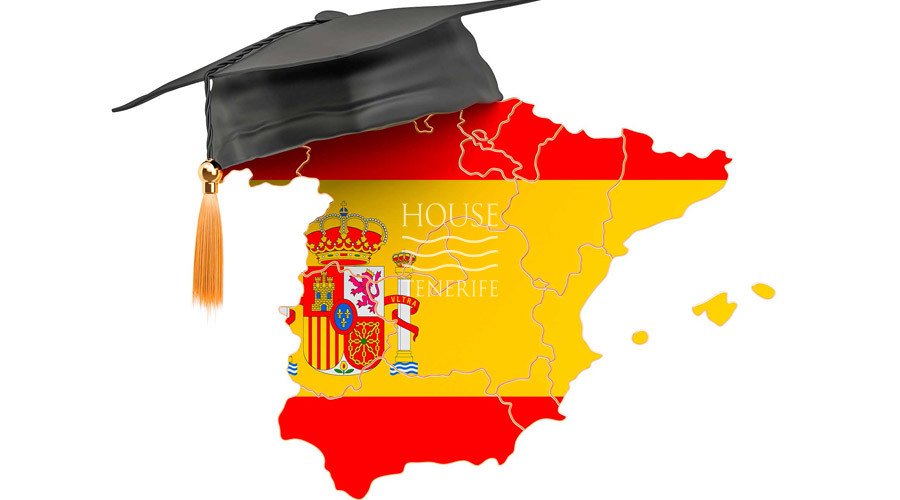Spain attracts thousands of students from around the world due to its prestigious universities, rich culture, and favorable climate. However, before diving into student life, it’s important to properly prepare for the immigration process, which includes obtaining a visa, registering at your place of residence, and completing other formalities. In this article, we will thoroughly examine all the steps necessary for a successful move to Spain for the purpose of study.
Main Requirements for Student Immigration
To become a student in Spain, several key conditions must be met:
- Student Visa. The first and most important step is obtaining a student visa. This document allows you to legally reside and study in Spain. The visa is issued by the Spanish consulate in your country and requires meeting several conditions.
- Age and Education. Admission to Spanish educational institutions requires a high school diploma or higher education, depending on the chosen program. Age restrictions may vary depending on the program, but the minimum age is usually 18 years.
- Financial Stability. It’s important to prove that you have sufficient financial means to live in Spain throughout the entire study period. This can be confirmed by bank statements, sponsorship letters, or scholarships.
- Proof of Enrollment. To apply for a visa, you need to provide an official invitation letter from a Spanish educational institution confirming your enrollment.
Process of Obtaining a Student Visa
Obtaining a student visa is a multi-step process that involves several stages:
- Collecting Documents. The standard package includes:
- A passport with a valid period.
- A completed visa application form.
- Photos according to consulate requirements.
- Proof of enrollment in an educational institution.
- Financial documents.
- Health insurance covering the entire stay.
- Police clearance certificate (for some countries).
- Health certificate.
- Filling Out the Application and Scheduling an Interview. The application must be filled out without errors and meet the consulate’s requirements. After submitting the documents, you need to schedule an interview.
- Passing the Interview. During the interview, you may be asked about the purpose of your trip, the chosen educational program, and your future plans. It’s important to answer honestly and confidently.
- Waiting for the Decision. The visa application review can take from several weeks to two months. After the review, you will receive a decision on your application.
Registration at the Place of Residence
After arriving in Spain, you must register at your place of residence. This is a mandatory procedure for all foreign students.
- Obtaining N.I.E. (Número de Identificación de Extranjero). This foreign identification number is required for opening a bank account, signing a lease, and other legal operations.
- Registering with the Local Municipality. Within the first 30 days after arrival, you must register at the nearest municipality (Empadronamiento). You will need a passport, student visa, lease agreement, and a completed form.
- Updating Documents. After registration, you need to update all documents related to your stay in Spain.
Work Permit for Students
Many foreign students wish to work while studying, and Spain provides such an opportunity, but with certain restrictions:
- Working Conditions. Students can work no more than 20 hours per week during the academic year and full-time during vacations.
- Submitting a Work Permit Application. To obtain a work permit, you need to submit an application to the immigration office, providing an employment contract and proof of your student status.
- Types of Jobs. Students often find work in the service sector, tourism, language teaching, and other areas that do not require high qualifications.
Possible Challenges and Their Solutions
Immigration is a complex process, and students may face various challenges. Here are some typical difficulties and ways to solve them:
- Long Visa Processing Time. Prepare to submit documents in advance and ensure that all papers are in order to avoid delays.
- Language Barrier. Learning Spanish before moving will help you adapt to life in the new country faster and make communication with locals and officials easier.
- Financial Difficulties. Ensure that you have enough funds for living and explore the possibility of obtaining scholarships and grants.
Conclusion
Immigration to Spain for students requires thorough preparation and attention at every stage of the process. Proper documentation and compliance with established requirements will ensure your successful enrollment and comfortable living in Spain. If you encounter questions or difficulties, do not hesitate to seek assistance from the consulate, your educational institution, or specialized immigration services. These steps will help you start a new chapter of your life with confidence and minimal issues.



